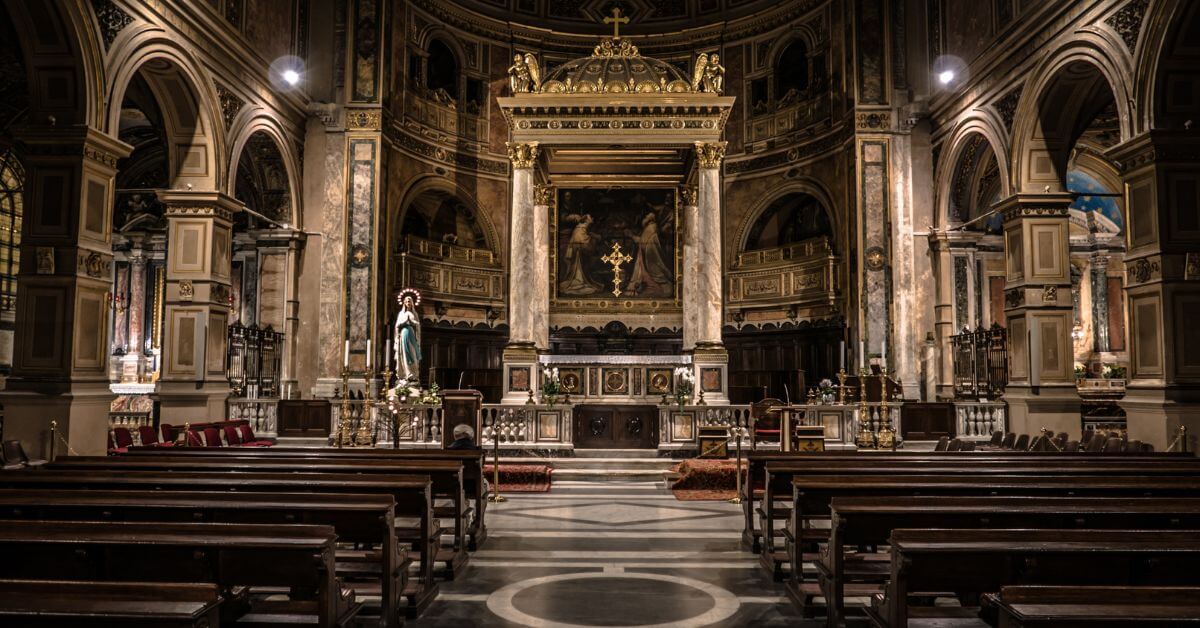Places of Worship in Abuja. The capital of Nigeria, Abuja, is a cosmopolitan mix of cultures and religions that displays a colorful tapestry of religious variety.
There are numerous churches, mosques, and temples throughout the city, all of which act as spiritual havens for their respective populations.
This blog article will look at Abuja’s diverse religious organizations’ rich history, stunning buildings, and spiritual practices as it relates to religion.
Come celebrate with us the serenity and coexistence that exist in Abuja’s many faith groups.
Churches: A Testament of Faith and Worship
Abuja is graced with a variety of churches, which are a testament to the Christian population’s strong commitment and faith.
Every church, no matter how large or small, has its own distinct charm and architectural design.
A well-known monument, the National Christian Centre, stands out as a representation of the harmony among Christian groups.
Additionally, churches like the All Saints Anglican Church and the Catholic Church of the Ascension offer their congregations a place of spiritual solace.
These houses of worship offer areas for prayer, worship, fellowship, and community involvement, promoting a sense of connection and enhancing believers’ faith.
Mosques: Centers of Islamic Worship and Community
Places of Islamic Worship and Communities of Islamic traditions have a home in Abuja, as the city is dotted with a large number of mosques.
The architectural wonder known as the Nigerian National Mosque is a well-known representation of Islamic unity and religion.
Other famous mosques, such as the Abuja National Mosque, and the An-Nur Mosque, offer tranquil settings for religious instruction, prayer, and contemplation.
These mosques are essential for promoting social cohesion since they act as community centers for Abuja’s Muslim population, providing them with support, education, and philanthropic endeavors.
Temples: Preserving Eastern Traditions and Spirituality
Abuja also accepts the diverse array of Eastern faiths, with numerous temples offering places of solace to followers.
The Lotus Temple, a tranquil and exquisitely created Bahá’ House of Worship, is a center for meditation and unification as well as a work of architecture.
In addition, the Sri Sathya Sai Baba Center and the Hare Krishna Temple serve as examples of Hinduism’s spiritual activities and draw followers and guests looking for comfort and enlightenment.
These temples act as cultural centers by conducting religious rituals, celebrations, and educational activities that advance knowledge of and appreciation for Eastern traditions and philosophy.
Interfaith Dialogue and Cooperation
The spirit of interfaith collaboration and conversation is one of Abuja’s notable features of religious diversity.
To promote tolerance, respect, and peaceful coexistence, several organizations and initiatives bring people from various religious backgrounds together.
Interfaith conversations, seminars, and cultural exchanges highlight the shared ideals of love, compassion, and service to humanity and work to foster harmony and togetherness among various religious communities.
Such contacts strengthen Abuja’s social fabric by cultivating respect for one another’s beliefs and traditions.
A Tapestry of Faith: Celebrating Unity in Diversity
The city’s embrace of many religious and spiritual traditions is symbolized by the beautiful tapestry of faith Abuja’s religious variety creates.
A tribute to the city’s dedication to diversity and respect for religious freedom is the coexistence of churches, mosques, and temples.
In Abuja, people are allowed to practice their religion openly, seek consolation in houses of worship, and actively participate in the communities in which they live.
This vibrant religious landscape inspires people, promoting harmony and understanding among beliefs and bolstering the social fabric of the city.
Religious Tourism and Pilgrimages
The religious landmarks in Abuja draw worshipers from all over the world in addition to the local populace.
People who want to strengthen their spiritual ties and learn more about Nigeria’s rich religious history are flocking to the city as a destination for religious tourism and pilgrimages.
The National Christian Centre, Nigerian National Mosque, Lotus Temple, and other important religious sites are visited by tourists and pilgrims who immerse themselves in the history, architecture, and spiritual milieu of these revered locations.
Abuja’s status as a hub for religious tourism further highlights the city’s acceptance of religious variety and its contribution to Nigeria’s cultural and spiritual landscape.
Faith-Based Charitable Initiatives
Abuja’s religious organizations actively participate in charity causes, going beyond only providing spiritual instruction.
Regardless of their religious affiliation, churches, mosques, and temples participate in a variety of social welfare programs that help the less fortunate.
These programs include giving vulnerable people access to food, clothing, healthcare, and education while fostering the virtues of kindness, compassion, and service.
The joint initiatives of many religious communities in Abuja show a shared dedication to helping people and having a beneficial influence on society.
Through these charity endeavors, religious diversity serves as a social welfare catalyst, improving lives and building a sense of oneness among Abuja’s various ethnic and religious groups.
Besides, Places of Worship in Abuja: Unveiling the Multifaceted Religious Traditions, The COZA Church in Abuja was founded by whom? is another excellent destination
Conclusion
Places of Worship in Abuja. The plurality of religions in Abuja is a reflection of the city’s inclusiveness and peaceful coexistence of all faiths.
Churches, mosques, and temples serve as hallowed places where their respective adherents can find comfort, spiritual direction, and community support.
Abuja stands out as a symbol of harmony and respect in a culture that upholds religious freedom and encourages interfaith dialogue.
The city’s religious institutions and rituals enhance its cultural history and add to Abuja’s overall identity.
Let us embrace the spirit of tolerance, comprehension, and harmony that connects Abuja’s various religious groups together as we celebrate religious diversity.





